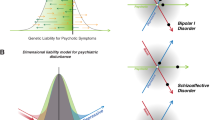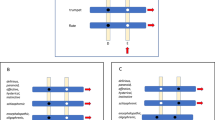Abstract
This is a personal perspective on bipolar disorder, entirely written by a well-informed patient who is a successful mental heath professional. The patient prefers to remain anonymous; therefore, I am listed here as the contact person to whom queries to the author can be referred. We believe that her insights are particularly important for those working in the field. As we investigate the molecular substrates of psychiatric disorders, it is crucial to keep in mind the clinical entities that are addressed in our research. The patient's words provide a deep understanding of real suffering that is overcome by effective treatment in the context of a highly supportive social structure. In her own words, ‘I was terrified that I could feel so wrecked inside, terrified that something was horribly wrong with me and terrified that I didn’t know how to tell anyone that I was slipping into a dark place. My struggle with bipolar disorder forced me to leave an Ivy League university and endure six hospitalizations during my early adulthood. After countless medication trials, I was successful on clozapine and graduated from college and then graduate school. My medications remind me each day of my struggle with mental illness but also of my recovery. I am relishing my life as a happily married woman, a beloved daughter and sister, and as a psychologist.’ One important item illustrated in this narrative is that clinical symptoms can be worsened by some treatments and positively affected by others. While some in the field erroneously believe that better treatment approaches depend exclusively on new drugs, this perspective shows how important it is to optimize the use of existing compounds. For some diseases like acute lymphoblastic leukemia (ALL) of childhood, rates of remission and cure have been constantly advancing through better use of existing compounds. In the last 20 years, without the advent of new drugs for that disease, new protocols for ALL have solely optimized the use of existing drugs. It is likewise crucial to advance the optimization of psychiatric treatments by identifying predictors of treatment response, possibly by pharmacogenomic approaches, which have the potential to individualize the use of existing treatments. This could rapidly decrease the enormous burden of psychiatric disorders, which is eloquently described in this perspective article.
This is a preview of subscription content, access via your institution
Access options
Subscribe to this journal
Receive 12 print issues and online access
$259.00 per year
only $21.58 per issue
Buy this article
- Purchase on Springer Link
- Instant access to full article PDF
Prices may be subject to local taxes which are calculated during checkout
Similar content being viewed by others
Author information
Authors and Affiliations
Corresponding author
Rights and permissions
About this article
Cite this article
Licinio, J. The experience of bipolar disorder: a personal perspective on the impact of mood disorder symptoms. Mol Psychiatry 10, 827–830 (2005). https://doi.org/10.1038/sj.mp.4001717
Received:
Accepted:
Published:
Issue Date:
DOI: https://doi.org/10.1038/sj.mp.4001717



